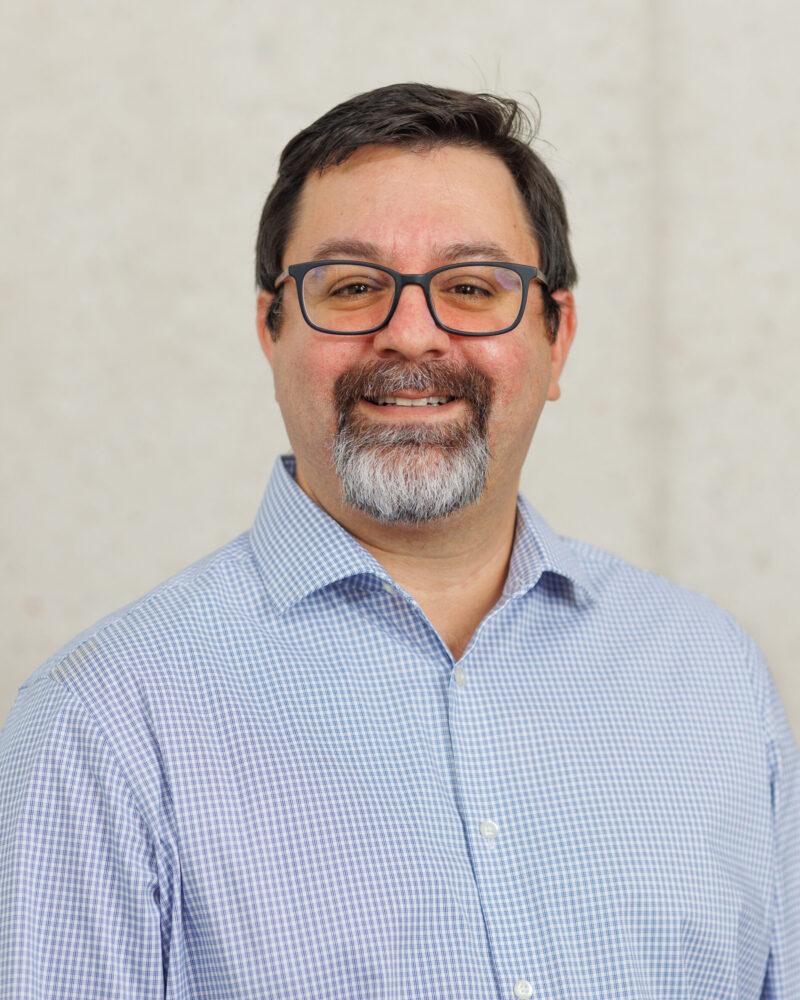
When many lawyers think about the first year of law school, they recall coffee-fueled discussions about the theories behind contract consideration and tort law remedies. Texas Law Assistant Professor Erik Encarnacion wants to change the way the profession thinks about these foundational concepts.
Encarnacion’s current research includes a series of articles on how resilience can shape traditional private law. His writing and speaking on resilience thus far has focused on tort law remedies, but this lawyer and philosopher hopes to open the door to questions about the bases for modern law.
Resilience as a legal theory?
Resilience is something of a pop psychology darling, so it’s helpful to start the discussion with what resilience isn’t. According to the conception of resilience used by Encarnacion, resilience is not the shame-inducing ideal that one can—and should—pick oneself up by the proverbial bootstraps and simply bounce back from a setback.
Encarnacion defines resilience as an ideal that encourages individuals to “emerg[e] better off than before serious setbacks.” Unlike the bootstrapping view of resilience, he recognizes that most resilience includes assistance from one’s community, which could even mean assistance from courts. Although it is impossible to erase the impact of a setback—including an injury recognized by tort law—he believes it can be possible for people to end up with lives that are in some sense better or more meaningful than before. His overarching project is to explore the ways that the law of remedies should, or already does, accommodate this ideal. He notes that legal remedies and the resilience ideal both aim to address catastrophic injuries after wrongdoing.
In one paper on the topic, “Two Standards of Repair: Restoration and Resilience,” Encarnacion begins to outline how resilience can fit into private law systems. A main theme of the paper, forthcoming in Volume 2 of “Oxford Studies in Private Law Theory,” is contrasting resilience-based damages with traditional tort remedies.
“Compensatory damages aim to restore plaintiffs to their pre-injury states as much as possible,” Encarnacion writes, “rather than empowering them to make things better than before the injury, even though many of their injuries—like lost limbs—simply cannot be undone.”
Resilient repair, he writes, would “acknowledge and even embrace traces of past harms by repurposing them into something valuable.” According to Encarnacion, rethinking compensatory damages in terms of resilient repair reframes compensation for disabling injuries. Instead of compensating for a permanently undesirable life – a framing that can demean disabled people – Encarnacion believes resilience-based compensation can support a transformed and newly valuable life for the injured person.
In another paper on the topic, “Resilience, Retribution, and Punitive Damages,” Encarnacion introduces the concept of “retributive resilience” in punitive damages. The paper, published in the Texas Law Review, argues that rather than representing an unjustified “windfall,” awards of punitive damages paid to the plaintiff—rather than state treasuries, plaintiffs’ attorneys, and so forth—can in appropriate cases be “a crucial avenue by which victims may attain a constructive form of retributive justice that allows them to demonstrate, to themselves and others, their resilience.” This is a departure from the widely-held view that punitive damages are inherently opposed to tort law’s compensatory aims, and Encarnacion says he resists “knee-jerk hostility to punitive damages.”
“What I’m suggesting,” says Encarnacion, “is that there are all of these places within tort law’s remedial scheme, where tort law should accommodate resilience, or where resilience may have some added value.”
A legal philosopher
As an undergraduate philosophy student at Princeton University, Encarnacion was interested in both law and philosophy. Torn about his career path, Encarnacion sought out a philosophy professor who had previously worked as a lawyer for the U.S. Department of Justice. The professor’s suggestion: “Why not do both?”
Based in part on the professor’s advice, Encarnacion earned a JD from Columbia Law School. After law school, he worked as an associate in the New York and Dallas offices of Weil, Gotshal & Manges LLP and also clerked in the Sixth Circuit Court of Appeals. Watching more experienced colleagues at Weil showed him how big-picture thinking about the theory behind laws can dovetail with effective day-to-day lawyering. “My big law practice convinced me, to my genuine surprise, that philosophical approaches to the law had clear benefits for advocacy,” he recalls. Eventually, though, “the siren song of academia was too strong, I applied to a PhD program, and the rest is history.” Or maybe legal philosophy.
At Texas Law, Encarnacion teaches first-year torts and contracts to the ambitious and caffeinated 1Ls of this generation, as well as Philosophy of Contract Law, which explores the ways in which parties and judges understand and interpret contractual consent.
“I’m interested in the way that private law and civil litigation either reflect very basic moral principles, or, to the extent that they don’t reflect those principles, tell us something really interesting about the law and about why there’s a divergence between ordinary moral thinking and what the law is willing to accommodate,” Encarnacion says.
More broadly, Encarnacion is intrigued by the “mystery” of the “legal inheritance” that shapes modern U.S. law, especially in common law subjects like tort and contract. “We should constantly be asking ourselves, ‘Why do we have this inheritance?’,” he says. “And is it a good thing to keep or maintain? Are there good reasons to justify keeping [doctrines] around? Or should we jettison them?”
Encarnacion’s writing and speaking on resilience-based law has not suggested that the foundations of modern tort law be “jettisoned.” But, as he notes in his paper on “Restoration and Resilience,” he “takes resilient repair seriously as an alternative way of thinking about compensatory damages.” And with a new perspective like Encarnacion’s on old legal principles, we might see those coffee-fueled 1Ls talking about resilience as a legal framework in the not-so-distant future.
